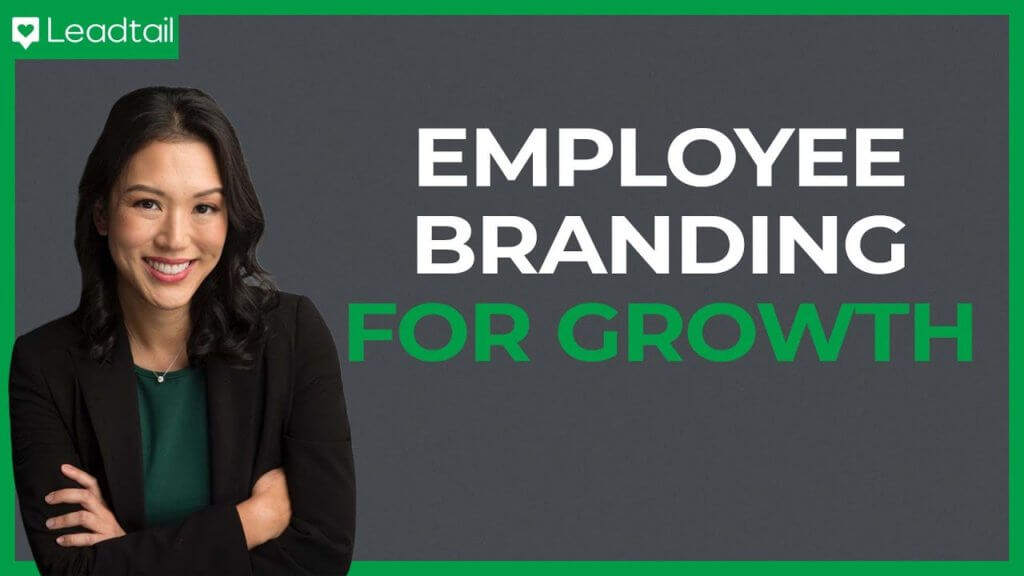Joyce Yeung, Head of Marketing at Seurat, puts it matter-of-factly when she says, “The bigger the dream, the better. Because small dreams don’t get funded.”
Joyce is senior director of marketing at Seurat Technologies. These days she’s thinking a lot about how employer branding and marketing work together, she tells host Bryan Kramer in a Leadtail TV interview.
Startups like Seurat need talents who are visionaries in their own right, she says. Those minds inspire change that recruiters are searching for in a job market that is drastically different from its pre-pandemic environment.
Employer branding has become essential to B2B marketing strategies. That’s why Joyce takes a humanistic approach to candidate search and sees intentional branding as an integral part of that process.
Define the Candidate Narrative
The scale of reach is vastly different when B2B marketers wish to articulate their mission to candidates rather than customers. Targeting takes on increased importance because the audience of potential employees is so much smaller than potential customers. Joyce’s approach is to ask current employees what keeps them with Seurat and what initially drew them to the company.
“The narrative that we create for the customer is different from the narrative we create for the candidate,” she says. “The narrative for the customer is around the value proposition of what Seurat can do for them in terms of a business improvement; the narrative for the candidate is around what Seurat can do for them beyond the benefits package.”
Part of Joyce’s success in recruitment comes from self-awareness. A startup comes with reasons for apprehension, as well as opportunities for growth that someone wouldn’t find elsewhere.
“It’s about making it tangible to them and making them understand that at a smaller company, your involvement will be bigger and with much greater reward than at a larger company,” she says. “That’s part of the narrative too.”
The Power of Company Culture
Does your company possess a clear vision of its culture that B2B marketers can access for recruitment? That’s a question management should answer if they want to find individuals who best fit their open roles.
“I think culture is such an important part of it,” Joyce says. “And knowing the leadership team and how they operate is a big part of it. And then knowing how you’re going to be treated is a big part of it. I think that’s more important. Now more than ever, a lot of people don’t want to be another number.”
Organizations that fail to prioritize employee advocacy fade into the background when potential employees sip their second cup of coffee and scroll through job postings.
But companies that have a clearly defined culture and mission give B2B marketers a powerful tool for promoting the brand in ways that make the organization attractive. It turns out that building a strong employer brand strengthens your marketing strategy for both customer and employee audiences.
Seurat forges their strong sense of community with a grassroots, women-led organization called SOS, Sisters of Seurat.
“What’s really cool is that being a manufacturing startup, you wouldn’t think the female contingency was that high,” Joyce says. “Seurat is actually over 25 percent female, which is awesome. This is a group of women that meet on a bi-weekly basis. It’s basically pure support, and to kind of just hear each other out, help each other out.”
Storytellers Wanted
Building that sense of community creates new challenges for a workforce of remote and on-site employees. One way to bridge this gap is by telling the story you want your employees to hear.
Joyce discusses the strength of B2B storytelling, a skill she has worked hard to hone throughout her career.
“I define storytelling as creating an emotional reaction with your audience,” she says. “Such that inspires them to take action. And that action doesn’t have to be huge. The action could be they simply follow you, subscribe, or they download something.”
This storytelling approach attracts both customers and candidates.
Seurat’s relatable mission empowers those who care about the planet and wish to rebel against traditional manufacturing technologies.
In the story she tells about the company, Joyce brings that message back to the person on the other side of the screen. How does it empower them?
“Differentiation is the heart of marketing, isn’t it? And how marketers go about it can sometimes be very confusing,” she says. “Few are actually very good. I view it as it’s less about how the product is different. And it comes back to those bigger business challenges.”
She insists that the B2B marketer’s role in this story is not to convince someone to purchase a product. It’s all about influence. Without the pressure of “buy now,” content becomes more thoughtful, and others want to be a part of it.
Want to reimagine your B2B marketing story? Let’s chat.
